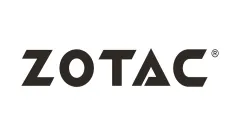The Mhow Cantonment Board has recently stirred attention by issuing a formal notice to the occupants and legal heirs of a residential property belonging to the family of Al-Falah Group chairman, Jawad Ahmed Siddiqui. The notice cites unauthorised construction on the property and calls for immediate compliance under the Cantonments Act, 1924. This latest development comes amid growing scrutiny of the Al-Falah Group, particularly in light of ongoing investigations linked to serious criminal incidents in Delhi and Madhya Pradesh.
The property in question, located at house number 1371 on survey number 245/1245 in Mukeri Mohalla, Mhow, has reportedly been subject to multiple communications from authorities over the years. As per officials, notices dating back to 1996 and 1997 instructed the removal of unauthorised structures, but these directives were allegedly ignored. The cantonment board has now issued a stringent directive mandating the removal of the construction within three days, warning of legal action and recovery of costs in case of non-compliance.
The scrutiny surrounding the Al-Falah Group has intensified due to the association of several suspects involved in the November 10 Delhi blast with Al-Falah University in Faridabad. Investigators are reportedly examining the university’s administrative records, financial transactions, and institutional approvals to identify possible connections. The Delhi blast claimed 15 lives and injured many others, prompting a Special Investigation Team (SIT) to probe the university and associated individuals.
Details of the Mhow Property Notice
Cantonment Engineer H.S. Kaloya stated that the notice was issued to the house of the late Moulana Hammad, father of Jawad Ahmed Siddiqui. According to Kaloya, the department had repeatedly communicated with the property occupants in 1996 and 1997 under the Cantonments Act, highlighting the need to remove the unauthorised construction. Despite these repeated communications, no action was reportedly taken to dismantle the structures in question.
The latest notice has set a strict three-day deadline for the removal of the unauthorised construction. Failure to comply will result in the cantonment board initiating removal actions, with all associated costs recoverable from the legal heirs or current occupants of the property. This move underscores the authorities’ commitment to enforcing regulations under the Cantonments Act and addressing longstanding violations.
Al-Falah University and Its Emerging Controversies
Al-Falah University, based in Faridabad and run by the Al-Falah Group, has become a focus of investigation following its alleged connection to the November 10 Delhi blast. Several suspects linked to the attack reportedly had affiliations with the university, including faculty members and administrators. One of the prime accused in the blast, Dr. Umar Un Nabi, served as an assistant professor in the university’s general medicine department.
The university’s role in these events has prompted law enforcement authorities to scrutinize institutional procedures, financial records, and internal approvals. Officials are attempting to determine whether any institutional resources were misused or if administrative lapses contributed to the alleged criminal activities. This ongoing probe has brought significant public and media attention to the university and its administrative practices.
Past Legal and Criminal Issues Involving Al-Falah Group
The Al-Falah Group has a history of legal and financial scrutiny in Madhya Pradesh. Hamood Ahmed Siddiqui, brother of Jawad Ahmed Siddiqui, was arrested in Hyderabad in connection with a large-scale financial fraud case dating back 25 years in Mhow. Authorities allege that Hamood orchestrated the fraudulent activities, which drew extensive police investigation and public interest at the time. His arrest underscores the longstanding scrutiny faced by the family and its enterprises in the region.
Combined with the recent notice on the Mhow property, these developments illustrate a pattern of ongoing legal and regulatory challenges facing the Al-Falah Group. The enforcement of cantonment regulations, alongside the broader investigation of university-related activities, highlights the multiple layers of scrutiny the family and its businesses are currently under.
Official Statements and Next Steps
The cantonment board has emphasized that the property owners and legal heirs are expected to comply with the notice immediately. Officials have made it clear that any failure to remove the unauthorised construction within the stipulated three days will lead to removal action, and costs will be charged to the concerned parties. The authorities’ firm stance demonstrates their commitment to maintaining regulatory standards and ensuring that past violations are addressed without further delay.
Meanwhile, the SIT and other investigating agencies continue to probe connections between Al-Falah University and the Delhi blast suspects. Investigations include reviewing academic, administrative, and financial documents to uncover potential links. The ongoing legal and criminal proceedings have created a significant public discourse about accountability, institutional oversight, and regulatory compliance in both educational and residential sectors.
Impact on Local and National Perception
The notice against the Mhow property and the ongoing investigations into Al-Falah University have sparked discussions among legal experts, educational analysts, and the general public. Observers note that such high-profile enforcement actions signal a stronger approach by authorities toward unauthorised construction and regulatory violations. The combination of property notices and criminal investigations has also intensified scrutiny of the Al-Falah Group’s operations and management practices.
Public interest in the case has grown, with media outlets providing detailed coverage of the developments. This increased attention is expected to influence perceptions regarding regulatory compliance in real estate and educational institutions. Authorities appear committed to pursuing accountability while ensuring that the law is applied consistently to all stakeholders, regardless of social or political stature.
Conclusion
The issuance of the notice to the Mhow property belonging to Al-Falah Group chairman’s family highlights ongoing challenges in enforcing regulations under the Cantonments Act, 1924. Coupled with investigations into Al-Falah University and related criminal cases, the matter underscores the intersection of legal enforcement, regulatory compliance, and public safety. As authorities continue to monitor the situation, the coming days are expected to reveal further actions and potential resolutions.
With the three-day deadline set by the cantonment board, the occupants and legal heirs of the property are under significant pressure to comply. At the same time, the investigations into Al-Falah University continue, aiming to uncover any deeper connections to criminal activities and financial irregularities. This multi-layered scrutiny demonstrates a comprehensive approach by law enforcement and regulatory bodies toward ensuring accountability and adherence to the law.
Also Read: Trump Signs Bill to Release Epstein Files: What’s Next?























